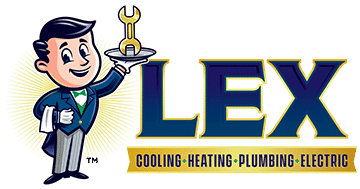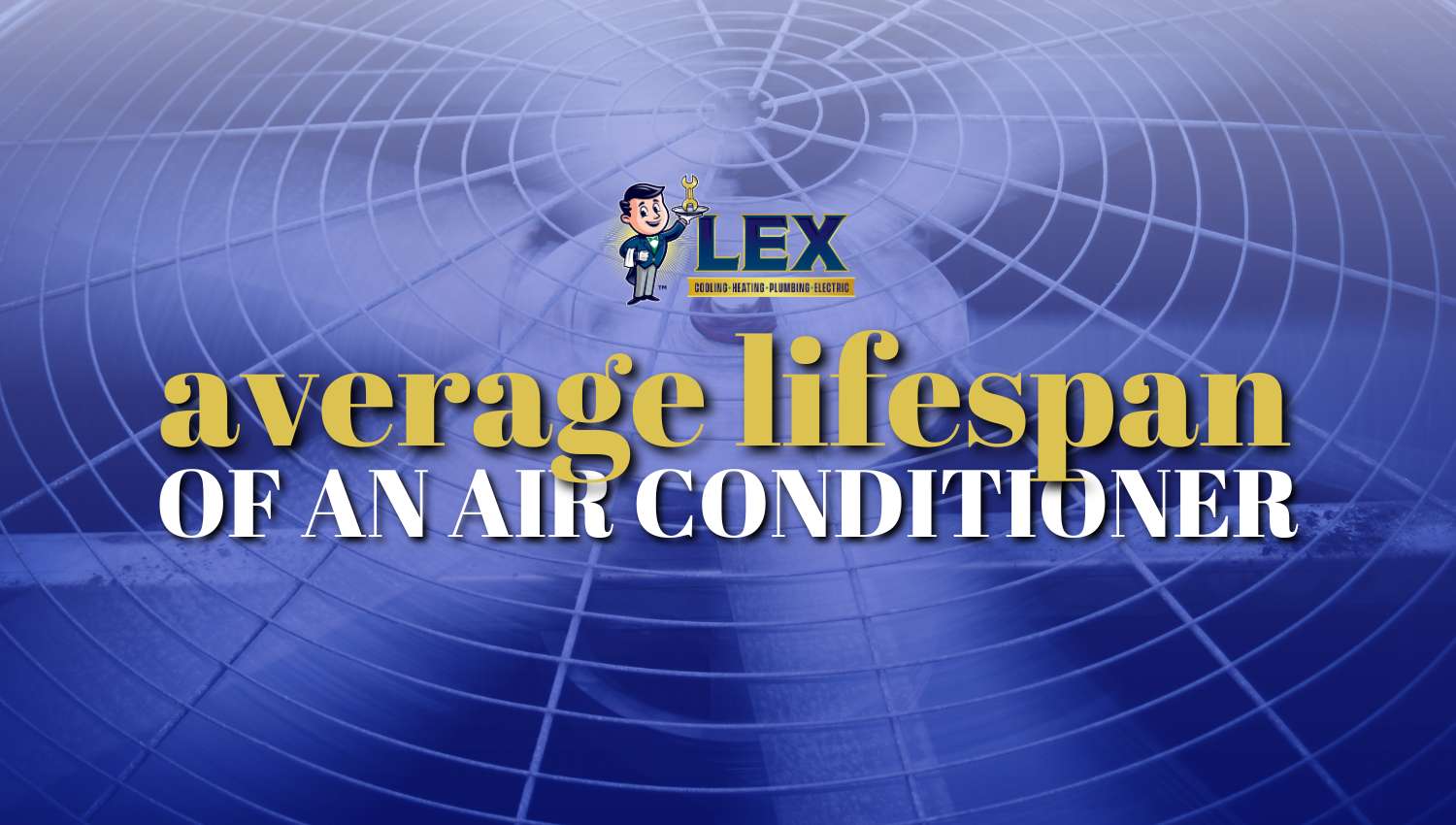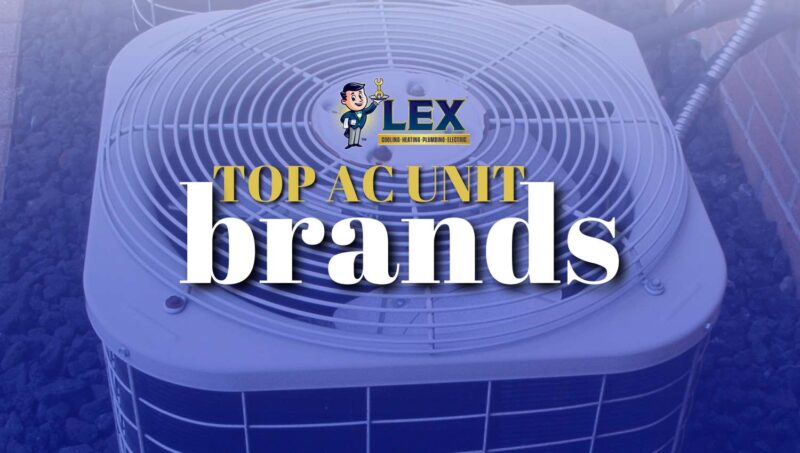In the warm climate of Carrollton, Plano, and other surrounding North Dallas neighborhoods, you need a reliable AC system that will keep your home cool for many years to come. With the hot Texas summers, your AC unit works hard to maintain comfort, so understanding its life expectancy is essential for planning ahead.
Most homeowners are curious about how long their AC system should last, and what factors impact its durability. Whether you’re looking to get the most out of your current AC unit or thinking about a replacement, knowing the typical lifespan of an air conditioner and the steps you can take to extend its life is key.
Regular maintenance and timely repairs can go a long way, and consulting with an experienced HVAC pro is a smart step to ensure your AC system continues to perform at its best. In this blog, our Carrollton air conditioning service experts at Lex Air explore the average life span of an air conditioner, common factors that influence their longevity, and practical tips to help you get the most out of your cooling system.
How Long Does an Air Conditioner Last?
Installing a new AC system is a big expense. Air conditioning units average between $3,000 and $5,000 but can cost as much as $12,000 if you choose a zoned HVAC system or one with a high SEER rating. However, it’s a purchase that should last many years, provided it’s well-maintained. That being said, well-maintained air conditioners typically have a useful life of about 10-15 years. If you’re opting for a heat pump, it should last at least 15 years.
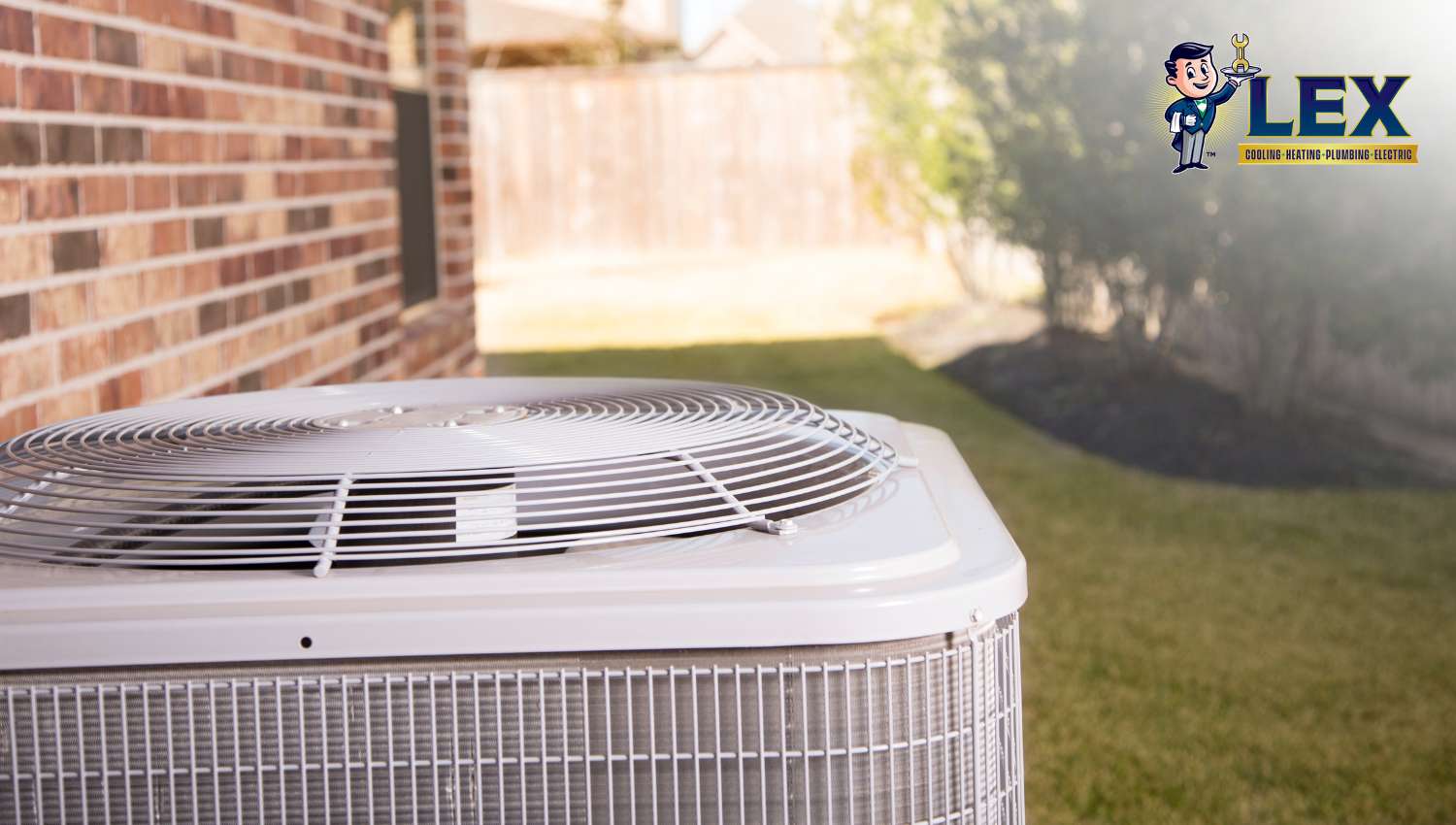
Average Lifespan of Different Types of Air Conditioners
When considering the average lifespan of an air conditioning system, it’s important to recognize that not all AC units are created equal. The type of system you have can significantly impact how long it lasts and how efficiently it runs. So, how long do AC units typically last depending on their type?
In this section, we’ll break down the lifespan of various types of air conditioning systems, from central air units to window and ductless models, and help you understand what to expect from each.
Central Air Conditioning Systems
Central air conditioning systems are known for their durability and long lifespan when properly maintained. On average, a central AC unit can last anywhere from 10 to 15 years, with some systems even reaching 20 years or more with regular care and attention.
Window Units
Window AC units typically have a shorter lifespan compared to other types of air conditioning systems. On average, window AC units last around 5 to 10 years, depending on factors such as usage, maintenance, and the quality of the unit itself. After 10 years, a window AC unit may begin to lose efficiency and require more frequent repairs, making it a good idea to consider replacement when it nears the end of its life expectancy.
Ductless Mini-Split Systems
Mini split air conditioners are known for their energy efficiency and flexibility, making them a popular choice for homes without ductwork. Given their durability and efficiency, a well-maintained ductless mini split unit in Carrollton, TX can provide reliable cooling for many years. On average, a mini split AC unit can last between 12 to 15 years, with proper maintenance.
Portable Air Conditioners
Portable air conditioners are convenient for cooling small spaces and are easy to move, but they generally have a shorter lifespan compared to other types of AC systems. On average, these air conditioners last between 5 and 10 years, depending on factors such as usage and maintenance.

Factors That Influence the Lifespan of HVAC System
The length of time your AC unit lasts can be influenced by several key factors, from how often it’s used to the quality of maintenance it receives. In this section, we’ll explore the various elements that can affect the lifespan of your HVAC system, helping you understand how to get the most out of your investment.
Proper Maintenance and Regular Service
Routine inspections and servicing are crucial for extending the lifespan and efficiency of your air conditioning system. By scheduling annual or bi-annual inspections with an HVAC professional, you can address small issues before they become major problems, improving the overall performance of your HVAC system and helping it last longer.
Climate and Usage
Climate and usage play a significant role in the performance and longevity of your AC unit. In hotter climates like North Texas, where air conditioners are used more frequently, the system tends to work harder, which can lead to wear and tear over time. Extended periods of high heat and constant use can cause components to degrade faster, reducing the lifespan of the air conditioning unit.
Additionally, if an AC unit is running continuously without breaks or is oversized for the space it’s cooling, it may not be as efficient, leading to higher energy consumption and more frequent repairs. On the other hand, moderate usage and a climate with milder temperatures can help preserve the unit’s efficiency and extend its life expectancy.
Properly managing usage based on climate conditions and ensuring that your AC unit is appropriately sized for your home are key factors in maximizing its longevity.
Installation Quality
Professional installation plays a crucial role in extending the lifespan of your AC unit. When an air conditioning system is installed correctly by an experienced HVAC pro, it ensures that all components are properly aligned, connected, and calibrated. Poor installation, such as improper sizing, incorrect refrigerant levels, or inefficient ductwork, can lead to strain on the system, causing it to work harder than necessary and potentially shorten its life expectancy.
A professional air conditioning installation also ensures that your air conditioner operates at peak efficiency, reducing the risk of frequent breakdowns and the need for costly repairs.
Age and Model
The age and model of your AC unit can significantly affect its lifespan and overall performance. Newer models are typically more energy-efficient and designed with advanced technology, which helps reduce wear and tear, improving the life expectancy of the system. Older models may not be as efficient, using outdated technology or refrigerants that can strain the system over time.
Upgrading to a newer model can provide long-term savings and greater reliability.
Size of the AC
Choosing the right size AC unit for your home is essential for its longevity and performance. An undersized air conditioning unit will struggle to cool your space effectively, causing it to run continuously and leading to unnecessary wear and tear on the system. This overwork can significantly reduce its lifespan. On the other hand, an oversized unit will cool the space too quickly without properly dehumidifying the air, which can lead to short cycling.
By selecting an AC unit that’s appropriately sized for your home, you ensure that it runs efficiently, minimizing strain and helping to extend its life expectancy while keeping energy costs down.
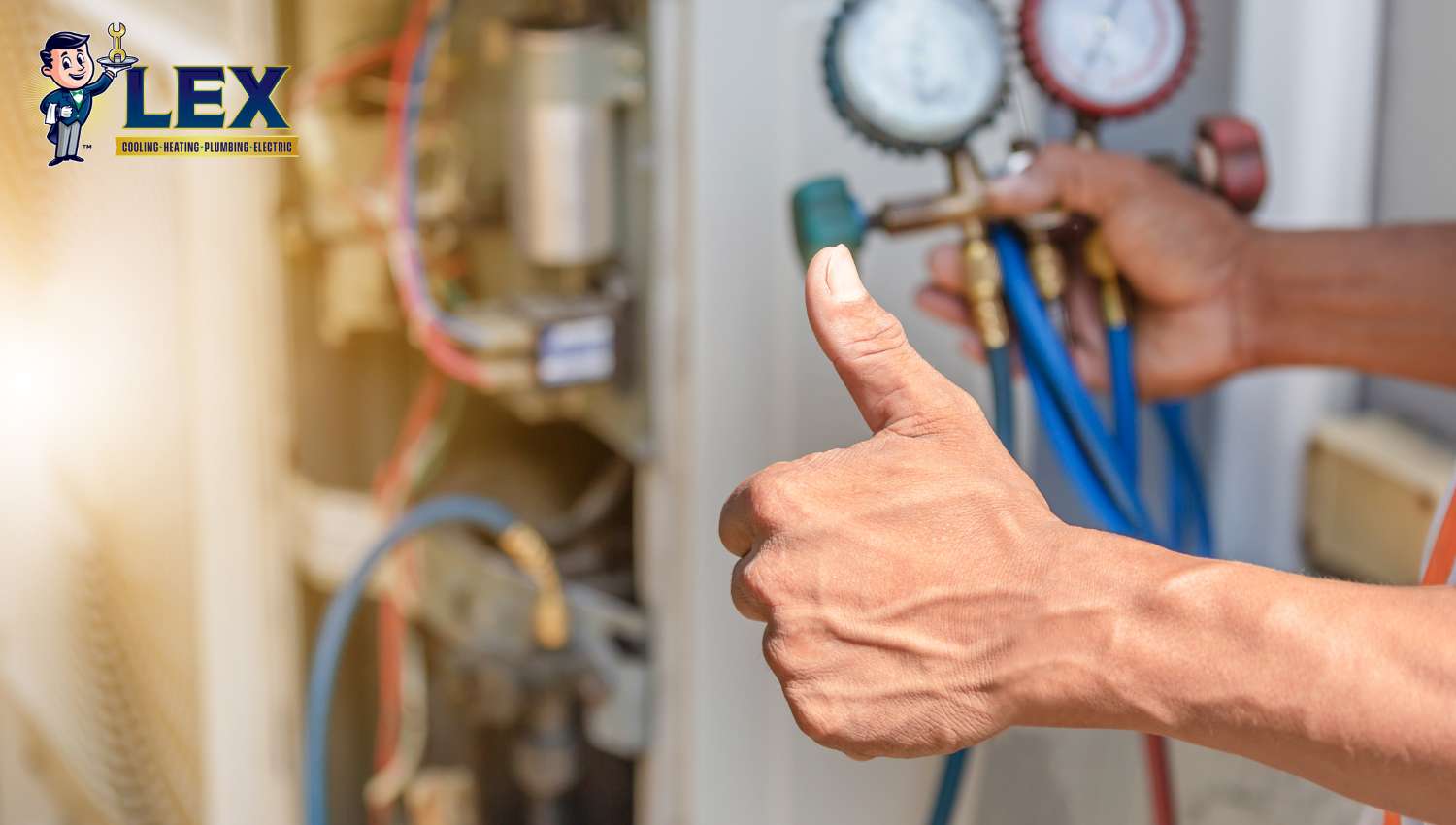
How Should I Maintain an Air Conditioner?
Like any home appliance, regular maintenance is essential for keeping your AC unit working properly and ensuring it operates efficiently. When properly maintained, your air conditioning system can run smoothly, catch problems early, and extend the life of the unit. Regular check-ups are key to detecting potential issues before they lead to expensive AC repairs.
While you can handle some basic tasks on your own, like changing the air filter regularly, dusting around air vents, cleaning the evaporator coil, and clearing dirt, leaves, and other debris from the outdoor unit, it’s important to have a professional perform a thorough inspection. Scheduling regular air conditioning maintenance with your HVAC contractor before the summer heat arrives, ideally during springtime, ensures your system is in top shape. A professional HVAC technician will:
- Check refrigerant levels
- Assess the condition of the fan
- Inspect the condensate drain and clear any blockages
- Examine the ductwork for leaks and perform air duct cleaning if necessary
- Inspect AC coils and straighten any bent ones
- Oil the condenser motor
- Calibrate the thermostat if needed
- Replace dirty air filters
- Lubricate the blower motor
- Run both cooling and heating cycles to ensure the entire HVAC system is working properly

What are the Signs That My Air Conditioner Is About to Fail?
If you are vigilant about HVAC maintenance, your AC should run smoothly and keep your home comfortable for many years without too many problems. However, wear-and-tear does occur and equipment can fail. If you notice any of the following signs, your unit may be reaching the end of its lifespan.
Frequent Breakdowns and Repairs
Frequent breakdowns and repairs are obvious signs that your cooling system may be nearing the end of its lifespan. If your AC unit requires constant fixes, it could be struggling to maintain proper functionality, which often indicates underlying issues that are not easily resolved. If you’re dealing with repeated repairs, it might be time to consider a replacement before the AC unit fails completely.
Increasing Energy Bills Due to Inefficiency
Higher energy bills due to inefficiency are another clear sign that your AC unit may be approaching the end of its lifespan. As the system ages or struggles to maintain optimal performance, it has to work harder to cool your home, which can lead to a higher monthly bill. If you’re noticing a significant increase in your energy bill while using the same amount of energy or less, this may indicate that your cooling system is no longer operating efficiently.
Weak Airflow
Weak airflow is a clear indication that your air conditioning system may be on the verge of failure. If you’re noticing that your AC unit is blowing warm air instead of cold air, or if the airflow feels significantly weaker than usual, this could signal a problem with the system’s components, such as a clogged filter, a malfunctioning fan, or issues with the ductwork.
When airflow is compromised, the air conditioning system has to work harder to cool your home, leading to reduced efficiency and potentially more serious issues if left unaddressed.
Unusual Noises or Smells
Strange noises or smells coming from your AC unit can be a sign that something is wrong and may indicate that your system is about to fail. If you hear grinding, squealing, or banging noises, it could be a sign of a mechanical failure, such as a worn-out fan or motor.
Similarly, if there is a musty, burning, or chemical smell, it could indicate issues like mold growth, an electrical problem, or overheating components. Any strange HVAC noises and smells should not be ignored, as they often point to underlying issues that can lead to a complete system breakdown if not addressed promptly.
Frequent Cycling or Running Constantly
Pay attention to an air conditioner that tends to run constantly or experiences frequent short cycling. If left unchecked, constant running or short cycling will result in unnecessary strain on the unit, particularly the compressor, which can significantly shorten the lifespan of your air conditioner. Frequent cycling or extended periods of running constantly can lead to overheating and more wear and tear, ultimately causing early failure of your system.
Water Pooling Near the Outdoor Unit
Due to condensation, a slight water drip near the AC unit is normal. If, however, you find large puddles of leaking water around the outdoor AC unit that don’t dry up quickly, something is wrong. If the refrigerant is leaking instead of water, this is a serious problem that needs attention. A refrigerant leak causes ice to form on the evaporator coil and along the copper refrigerant lines. If this is the case, shut off your air conditioner and call an HVAC professional immediately.
The Unit is 10+ Years Old
If your AC unit is 10+ years old, it may be nearing the end of its life span and could be struggling to maintain optimal performance. As AC units last longer, they become less efficient, often leading to reduced air quality in your home. An old AC unit may have difficulty properly filtering the air, causing dust, allergens, and other particles to circulate more freely.
Additionally, older systems tend to work harder, leading to higher energy consumption and more frequent breakdowns. If your system is over a decade old, it might be time to consider replacing it to ensure your home remains cool and the air quality stays at its best.

Need a New Air Conditioning Unit? Call the Carrollton AC Pros at Lex Air Today!
If you’re having AC problems, trust the Carrollton heating and air experts at Lex Air Conditioning and Heating. Whether you need AC troubleshooting, routine AC maintenance, help with installing a new system, or assistance deciding whether to repair or replace your old AC unit, our HVAC professionals are here to help.
Don’t hesitate to call us at (972) 217-8955 or reach out online for expert service and guidance. We’re committed to ensuring your home stays comfortable year-round.
